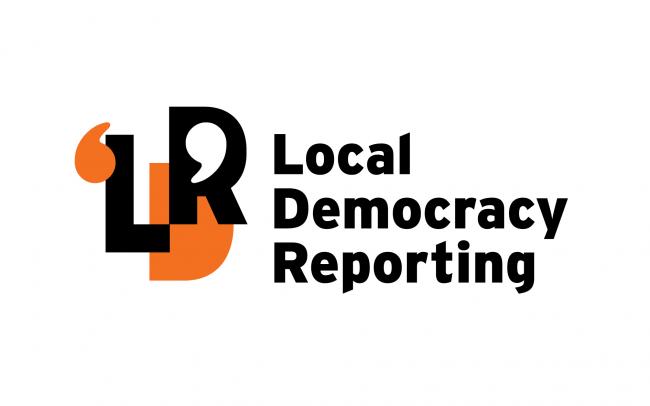Respiratory physician Lutz Beckert considers chronic obstructive pulmonary disease management, including the prevention of COPD, the importance of smoking cessation and pulmonary rehabilitation, and the lifesaving potential of addressing treatable traits. He also discusses the logic of inhaler therapy, moving from single therapy to dual and triple therapy when indicated, as well as other aspects of management
’Reach out early’: Iwi trust expands COVID support for whānau
’Reach out early’: Iwi trust expands COVID support for whānau

An iwi trust that’s been supporting whānau through Covid has expanded its role of kaitūhono (navigators) to support families beyond those in isolation.
The trust, Te Kotahi o Te Tauihu, was established in February 2021 to help whānau in the top of the south, including Marlborough, Nelson and Tasman through the pandemic.
The eight Te Tauihu iwi collectively mandated an iwi-led response plan, working alongside Civil Defence and crown organisations, to minimise risk to iwi and Māori.
Te Kotahi o Te Tauihu pouwhakahaere rauemi (operations manager) Dr Lorraine Eade said their Covid-19 response had initially been helping whānau in isolation – generally with food, and for the seven days they could not leave the house if someone tested positive.
“Back in February we started this service ... specifically designed for whānau, and all ethnicities, who were isolating at home due to Covid.
“Back then we could support them if they needed kai. Because not everybody has resources, money in the bank, or they don't have whānau around who can go and do that shopping for them at the supermarket.
“Or they may not have the internet, so they can't do online shopping. There's a whole range of things.”
Recently that support had been extended to families outside those in isolation to anyone affected by Covid, and the trust wanted to get the message out that you did not have to be Māori to ask for help.
For example, if a family had work hours cut because of the Covid recovery.
“Say someone is working 20 hours a week, instead of their usual 40 [hours]. Until they can adapt to that or transition back to work, they might have outstanding debt.
“We can help contribute towards some of that.”
She said there had been whānau affected because their children had been at home as a result of Covid.
“For some people it hasn’t just been seven days, it’s been longer than that. It might have been two weeks.
“There might be educational impacts. And when you have a whole family at home for two weeks straight, in the middle of winter, the power bill escalates through the roof.
“And when you’ve got everybody staying at home, your food gets out of your cupboard pretty quickly.”
Eade said they were “just really keen” to support families who were really struggling, and don’t have family support.
“Whatever it is, we just take each case as it comes, and we try to help as much as we can.”
“We now can support families as they’ve been impacted. That might not be felt for two months after isolation, but we can help.”
She said for some families it can be hard to reach out, especially if they had not sought support before.
“We’re trying to flip that. And we noticed that back in 2020, when we first set up Te Pātaka, our foodbank here in Wairau (Blenheim), we had families who had utilised all of their annual leave, they had utilised their money in their bank that they had saved before they got to us.
“If they had come just a little bit earlier, they still would have had some of that resource there. But that’s why we’re trying to get the message out, reach out early, if we can we will help.”





![Barbara Fountain, editor of New Zealand Doctor Rata Aotearoa, and Paul Hutchison, GP and senior medical clinician at Tāmaki Health [Image: Simon Maude]](/sites/default/files/styles/thumbnail_cropped_100/public/2025-03/Barbara%20Fountain%2C%20editor%20of%20New%20Zealand%20Doctor%20Rata%20Aotearoa%2C%20and%20Paul%20Hutchison%2C%20GP%20and%20senior%20medical%20clinician%20at%20T%C4%81maki%20Health%20CR%20Simon%20Maude.jpg?itok=-HbQ1EYA)
![Lori Peters, NP and advanced health improvement practitioner at Mahitahi Hauora, and Jasper Nacilla, NP at The Terrace Medical Centre in Wellington [Image: Simon Maude]](/sites/default/files/styles/thumbnail_cropped_100/public/2025-03/2.%20Lori%20Peters%2C%20NP%20and%20advanced%20HIP%20at%20Mahitahi%20Hauora%2C%20and%20Jasper%20Nacilla%2C%20NP%20at%20The%20Terrace%20Medical%20Centre%20in%20Wellington%20CR%20Simon%20Maude.jpg?itok=sUfbsSF1)
![Ministry of Social Development health and disability coordinator Liz Williams, regional health advisors Mary Mojel and Larah Takarangi, and health and disability coordinators Rebecca Staunton and Myint Than Htut [Image: Simon Maude]](/sites/default/files/styles/thumbnail_cropped_100/public/2025-03/3.%20Ministry%20of%20Social%20Development%27s%20Liz%20Williams%2C%20Mary%20Mojel%2C%20Larah%20Takarangi%2C%20Rebecca%20Staunton%20and%20Myint%20Than%20Htut%20CR%20Simon%20Maude.jpg?itok=9ceOujzC)
![Locum GP Helen Fisher, with Te Kuiti Medical Centre NP Bridget Woodney [Image: Simon Maude]](/sites/default/files/styles/thumbnail_cropped_100/public/2025-03/4.%20Locum%20GP%20Helen%20Fisher%2C%20with%20Te%20Kuiti%20Medical%20Centre%20NP%20Bridget%20Woodney%20CR%20Simon%20Maude.jpg?itok=TJeODetm)
![Ruby Faulkner, GPEP2, with David Small, GPEP3 from The Doctors Greenmeadows in Napier [Image: Simon Maude]](/sites/default/files/styles/thumbnail_cropped_100/public/2025-03/5.%20Ruby%20Faulkner%2C%20GPEP2%2C%20with%20David%20Small%2C%20GPEP3%20from%20The%20Doctors%20Greenmeadows%20in%20Napier%20CR%20Simon%20Maude.jpg?itok=B0u4wsIs)
![Rochelle Langton and Libby Thomas, marketing advisors at the Medical Protection Society [Image: Simon Maude]](/sites/default/files/styles/thumbnail_cropped_100/public/2025-03/6.%20Rochelle%20Langton%20and%20Libby%20Thomas%2C%20marketing%20advisors%20at%20the%20Medical%20Protection%20Society%20CR%20Simon%20Maude.jpg?itok=r52_Cf74)
![Specialist GP Lucy Gibberd, medical advisor at MPS, and Zara Bolam, urgent-care specialist at The Nest Health Centre in Inglewood [Image: Simon Maude]](/sites/default/files/styles/thumbnail_cropped_100/public/2025-03/7.%20Specialist%20GP%20Lucy%20Gibberd%2C%20medical%20advisor%20at%20MPS%2C%20and%20Zara%20Bolam%2C%20urgent-care%20specialist%20at%20The%20Nest%20Health%20Centre%20in%20Inglewood%20CR%20Simon%20Maude.jpg?itok=z8eVoBU3)
![Olivia Blackmore and Trudee Sharp, NPs at Gore Health Centre, and Gaylene Hastie, NP at Queenstown Medical Centre [Image: Simon Maude]](/sites/default/files/styles/thumbnail_cropped_100/public/2025-03/8.%20Olivia%20Blackmore%20and%20Trudee%20Sharp%2C%20NPs%20at%20Gore%20Health%20Centre%2C%20and%20Gaylene%20Hastie%2C%20NP%20at%20Queenstown%20Medical%20Centre%20CR%20Simon%20Maude.jpg?itok=Z6u9d0XH)
![Mary Toloa, specialist GP at Porirua and Union Community Health Service in Wellington, Mara Coler, clinical pharmacist at Tū Ora Compass Health, and Bhavna Mistry, specialist GP at Porirua and Union Community Health Service [Image: Simon Maude]](/sites/default/files/styles/thumbnail_cropped_100/public/2025-03/9.%20Mary%20Toloa%2C%20Porirua%20and%20Union%20Community%20Health%20Service%20in%20Wellington%2C%20Mara%20Coler%2C%20T%C5%AB%20Ora%20Compass%20Health%2C%20and%20Bhavna%20Mistry%2C%20PUCHS%20CR%20Simon%20Maude.jpg?itok=kpChr0cc)